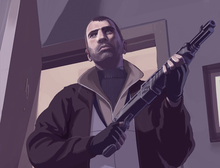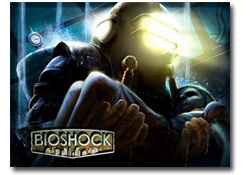Welcome to the future, as Jonah, Scott and TJ ring in the new year, as this week’s Gaming Flashback reminds Jonah of what his favorite game of the decade was. (Spoiler: Mass Effect 2.) In fact, the game is so good Jonah and TJ talk about it for an hour before discussing the week’s generally weak news.
This week’s topics include:
- Report: New Switch model launching in 2020
- The Ni No Kuni movie is coming to Netflix
- Silent Hill Art Director Masahiro Ito announces a new video game
- Vice City: Remastered for Grand Theft Auto 5 mod released
Was 2010 the best year for games in the 2010’s? Let us know.


 Bioshock arrived on the Xbox 360 almost August of 2007, about one year from this month. It’s set to arrive on the PlayStation 3 in October of 2008, over one year after the Xbox 360 version. Is it too late?
Bioshock arrived on the Xbox 360 almost August of 2007, about one year from this month. It’s set to arrive on the PlayStation 3 in October of 2008, over one year after the Xbox 360 version. Is it too late?